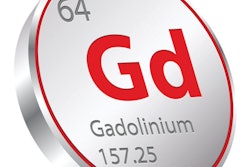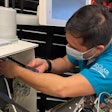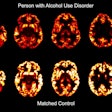Dear AuntMinnie Member,
Improving patient safety in the MRI suite has been a major area of focus in radiology in recent years. On Thursday, the U.S. Food and Drug Administration (FDA) took steps toward clarifying its regulatory approach to MRI safety with the release of a new guidance document.
The guidance covers issues concerning any medical device that could be introduced into the MRI environment, be it implanted or external. It also touches on issues like device heating, interaction with radiofrequency coils, and safety labeling. The one area it does not address is the manufacture of MRI scanners.
The document also proposes a category of "MRI unsafe" devices -- those that would carry a special icon indicating that they should never be introduced into the MRI scanner room.
The new rules are a welcome step toward making MRI safer for both patients and staff. Get more details in our MRI Community.
Ga-68 PSMA PET
In other news, PET scanning with gallium-68 (Ga-68)-labeled prostate-specific membrane antigen (PSMA) radiopharmaceuticals has been showing promise for prostate cancer imaging. In a new paper, researchers from the University of California, San Francisco assessed the value of the technique in both PET/CT and PET/MRI scanning for prostate cancer follow-up.
They found that Ga-68 scanning was safe for patients and provided high-quality diagnostic information, with a sensitivity of 89% and a positive predictive value of 91%. The findings suggest that Ga-68 PSMA PET can play a role in the management of patients with prostate cancer in the future.
Also in our Molecular Imaging Community is an article about how Japanese researchers developed a Compton camera that can detect radiotracers from both PET and SPECT scans.
2020 radiology payments
Finally, visit our Imaging Leaders Community for the latest news on proposed Medicare reimbursement rates for 2020. The U.S. Centers for Medicare and Medicaid Services (CMS) proposed a 1% reduction in payments for radiology services, while interventional radiology would get a 2% haircut. Nuclear medicine would get a 1% increase, but CMS stood pat on payments for radiation oncology procedures.



















